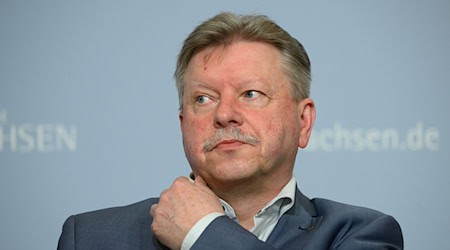Many Western democracies are facing major political and economic challenges. The latest study by the non-profit Hertie Foundation and the ifo Institute (Leibniz Institute for Economic Research at the University of Munich) provides important insights into this. Under the title "Stable democracies in difficult economic times?", Dr. Florian Dorn, David Gstrein and Dr. Florian Neumeier shed light on the economic causes of the rise of radical movements and their impact on the stability of democracies. A look at the results shows: When prosperity wobbles, democracy begins to falter.
When the center crumbles
Radical parties and populists have gained ground in many Western democracies in recent years. There are plenty of examples: Donald Trump in the USA, Marine Le Pen in France and the Alternative for Germany (AfD). These developments are not just an expression of dissatisfaction, they show a deeper crisis of trust between the state and its citizens that is jeopardizing social cohesion and democracy.
The authors of the study analyze the causes of these developments and take a special look at the economic reasons. While cultural and social factors also play a role, the focus here is on economic uncertainty.
Why economic uncertainty makes populists strong
The power of money
A key finding of the study is that economic conditions have a major influence on political attitudes. Low economic growth, high unemployment and growing inequality create fertile ground for radical parties. Support for extreme positions increases particularly in difficult economic times.
The fear of decline
Economic insecurity encompasses more than just financial difficulties. It includes the fear of job loss, falling income and an uncertain future. This uncertainty strongly influences political decisions and often leads to higher support for populist parties. In regions with high economic insecurity, trust in established political institutions is particularly low.
Globalization: curse or blessing?
Globalization has created winners and losers. Regions that are heavily affected by international competition often experience higher unemployment and lower wages. This leads to increased support for nationalist and protectionist parties that promise to protect the domestic economy. These parties use the population's dissatisfaction with economic conditions to spread their populist messages.
Germany in focus: Why the AfD is so successful
The study focuses in particular on Germany and the development of the AfD. Since its foundation in 2013, the AfD has achieved considerable success in both federal and state elections, particularly in the new federal states. The authors show that economic deprivation - measured by the poverty rate and the poverty gap - correlates significantly with the AfD's electoral success. Support for the AfD is particularly high in regions with high and rising economic insecurity.

Voting decisions in economically uncertain times / Image by Vilkasss on Pixabay
What to do? Measures to counter the rise of radical parties
The results of the study suggest that economic factors play a significant role in the success of populist and radical parties. To counteract this development and strengthen social cohesion, the authors recommend several measures:
Strengthening social security: In times of economic crisis, it is crucial that the state strengthens social security systems in order to cushion the negative impact on those affected.
Targeted structural and economic policy: Especially in structurally weak regions, measures must be taken to promote economic development and offer prospects for the future.
Education and training: Targeted improvement of the education and training system can help to better prepare people for economic changes and sensitize them to populist messages.
Strengthening trust in democracy: Transparent and inclusive political processes are necessary so that citizens feel that their concerns are being taken seriously and solutions are being offered.
A look into the future
The study by the Gemeinnützige Hertie-Stiftung and the ifo Institute provides a comprehensive overview of the economic causes of the rise of radical movements and their impact on the stability of democracies. It shows that economic insecurity and inequality are key factors that undermine trust in democratic institutions and prepare the ground for populist and extremist movements. Targeted measures in the areas of social security, structural policy and education can counteract this development in order to promote stability and cohesion in democratic societies.
When prosperity is shaky, we must act
The message of the study is clear: economic stability and social security are not only economic policy goals, but also basic prerequisites for a stable democracy. If we want to prevent the rise of radical and populist parties, we must take the economic causes of their successes seriously and tackle them in a targeted manner. This is the only way we can strengthen social cohesion and prepare democracy for the future. It is crucial that all sections of the population and all regions are involved in economic development. A sustainable social balance and future-oriented structural policy are essential in order to protect democracy.










